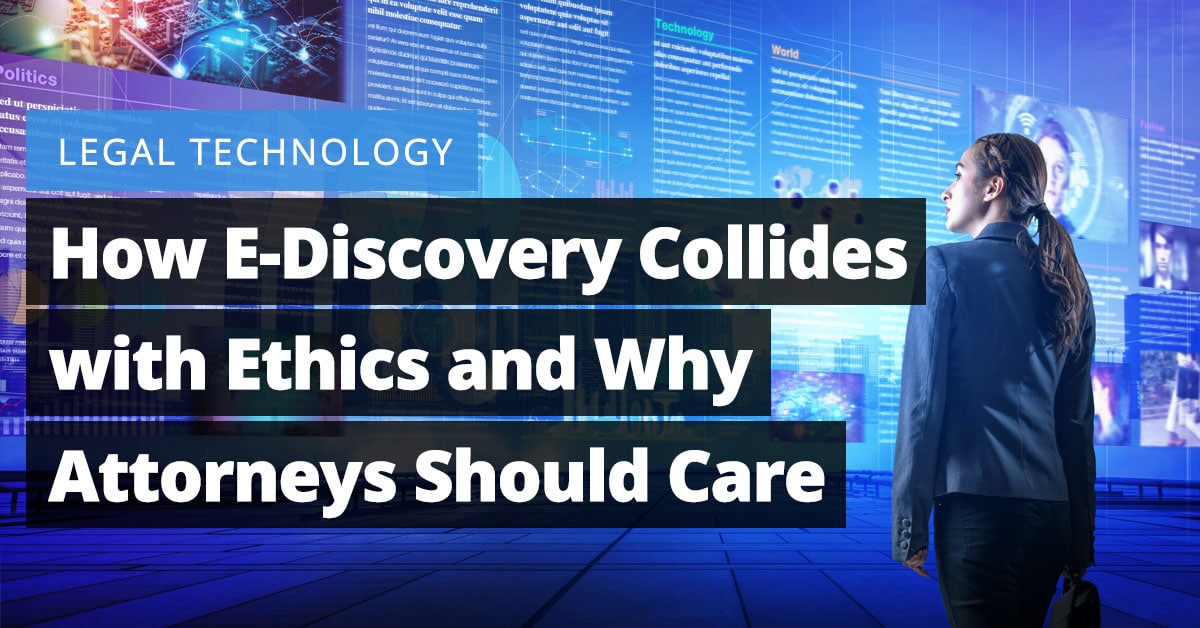
The temptation to data dump e-documents has been too much for some firms and clients. Big data has made it too easy for a good attorney to become an ethically challenged attorney. During the course of e-discovery, an ethically challenged attorney may submit an enormous amount of electronic data during e-discovery.
E-discovery refers to the preservation, collection, and production of electronically stored information (ESI) when requested as a component of a legal proceeding. Electronic documents include, among other electronic forms of information, emails, documents, presentations, databases, voicemail, multimedia, social media and websites.
Data dumping in e-discovery is when a party decides to over-provide information, whether it was requested or not, in an attempt to hide the needle of relevant information in a haystack of electronic documents. It makes it difficult and time-consuming to sift through the massive amount of information for relevant pieces, vastly increasing the costs to review the data for relevance.
In SEC v. Collins & Aikman Corp. (S.D.N.Y. 2009), the SEC dumped more than 10 million pages on Collins & Aikman. The judge was unhappy with this maneuver, writing that Rule 34 of the Federal Rules of Civil Procedure prohibits “simply dumping large quantities of unrequested materials onto the discovering party along with the items actually sought.”
The judge also frowned on the SEC’s claim that the plaintiff’s attorney could locate the relevant information by merely reviewing the submitted e-documents. “A page-by-page manual review of ten million pages of records is strikingly expensive in both monetary and human terms and constitutes ‘undue hardship’ by any definition,” wrote Judge Scheindlin.
Perhaps because ESI and e-discovery are relatively new in the legal environment, it’s been estimated data dumping is currently taking place at an alarming rate, notwithstanding Rule 34 of the Federal Rules of Civil Procedure. Rules and expectations regarding this frontier seem not to be quite set at this time.
Ben Sexton, writing in Legal Tech News, suggests employing referees. These e-discovery referees would be objective experts who would become quite knowledgeable about the cases they are refereeing. They would become guides in helping parties keep to their ethical values while maintaining their advocacy obligations to their clients.
Sexton also enumerates four steps that could decrease temptations of adversaries to data dump.
- Learn how to ask for what you want. Strike a balance between being too broad and too specific when you make a discovery request.
- Find an e-discovery technology expert whom you trust, and bother them regularly. There are many professionals today who can help maintain a fair setting in your quest for e-documents.
- Use technology to create transparency. Ask respondents to validate results. Also, use deduplication functions on production.
- Be mindful of the potential opportunities for opposing counsel to skirt the rules. Tie up loose ends. A skilled e-discovery attorney can create loopholes and backdoors.
Still, other suggestions include starting your case assessment early. Talk to your opponent early in the process to come to an agreement about the e-discovery process for both sides. Also, discuss the data format.
Data dumping is not the only area in e-discovery where parties may run afoul of fair play. The obligation to preserve documents can pose a problem for attorneys, in that clients may not make an effort to preserve evidence. This is particularly problematic when the attorney did not put a litigation hold on the material.
In Industrial Quick Search v. Miller, Rosado & Algois, 1:13-Civ-05589-ER (S.D.N.Y. Jan. 2, 2018), the court found that the plaintiff’s attorney should have issued a litigation hold and then monitored the client’s compliance, even though the evidence in question was destroyed before the plaintiff’s attorney had been engaged.
Attorneys also must tread carefully when following the obligations of Federal Rule of Civil Procedure 26(f) to cooperate with opposing party in developing a discovery plan and the duty to safeguard a client’s confidences. To sidestep future problems, an attorney should confer with the client beforehand about possible material to share with the adversary.
It may be a whole new world with EIS, but the same old rules should still apply. In the end, the courts should have adversarial parties playing by these proven rules, hopefully, sooner rather than later.
For similiar articles, please visit our blog page.




